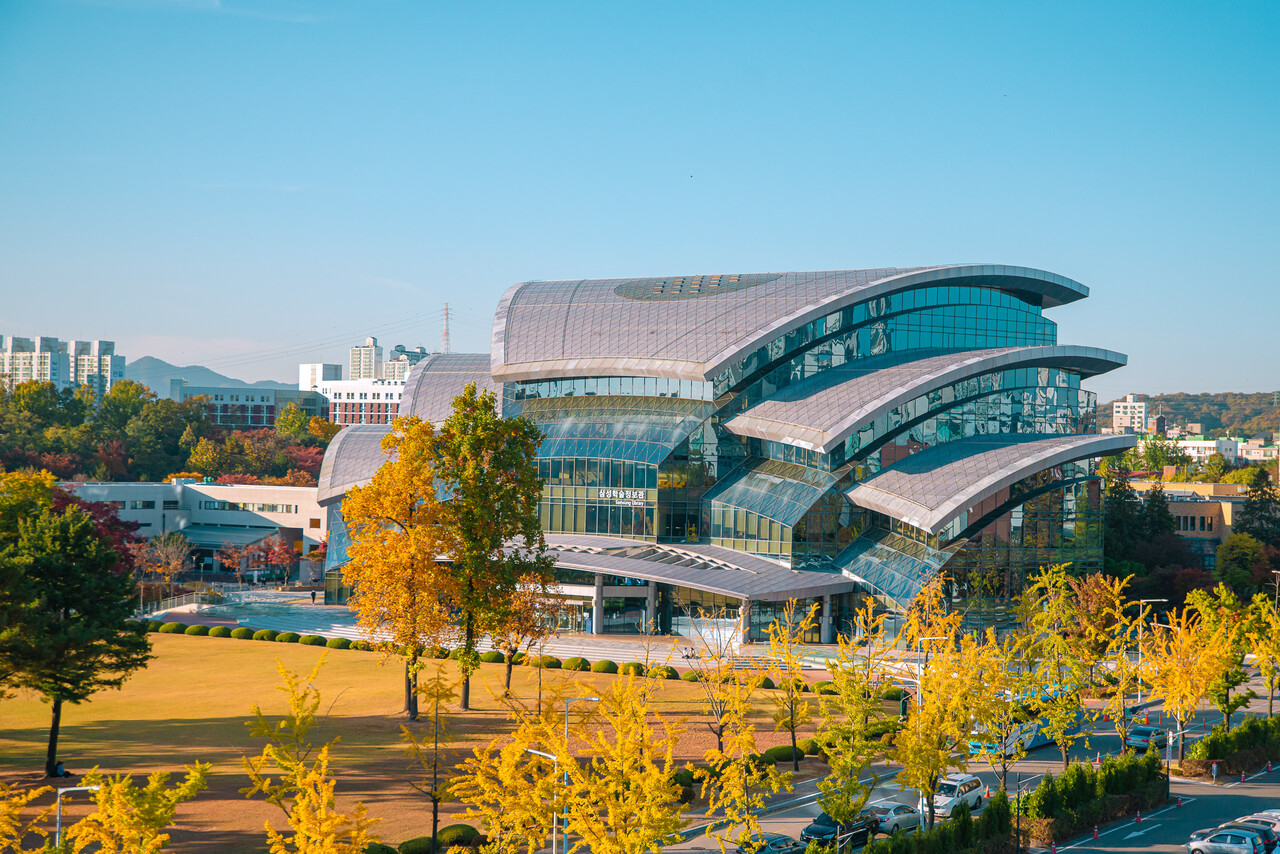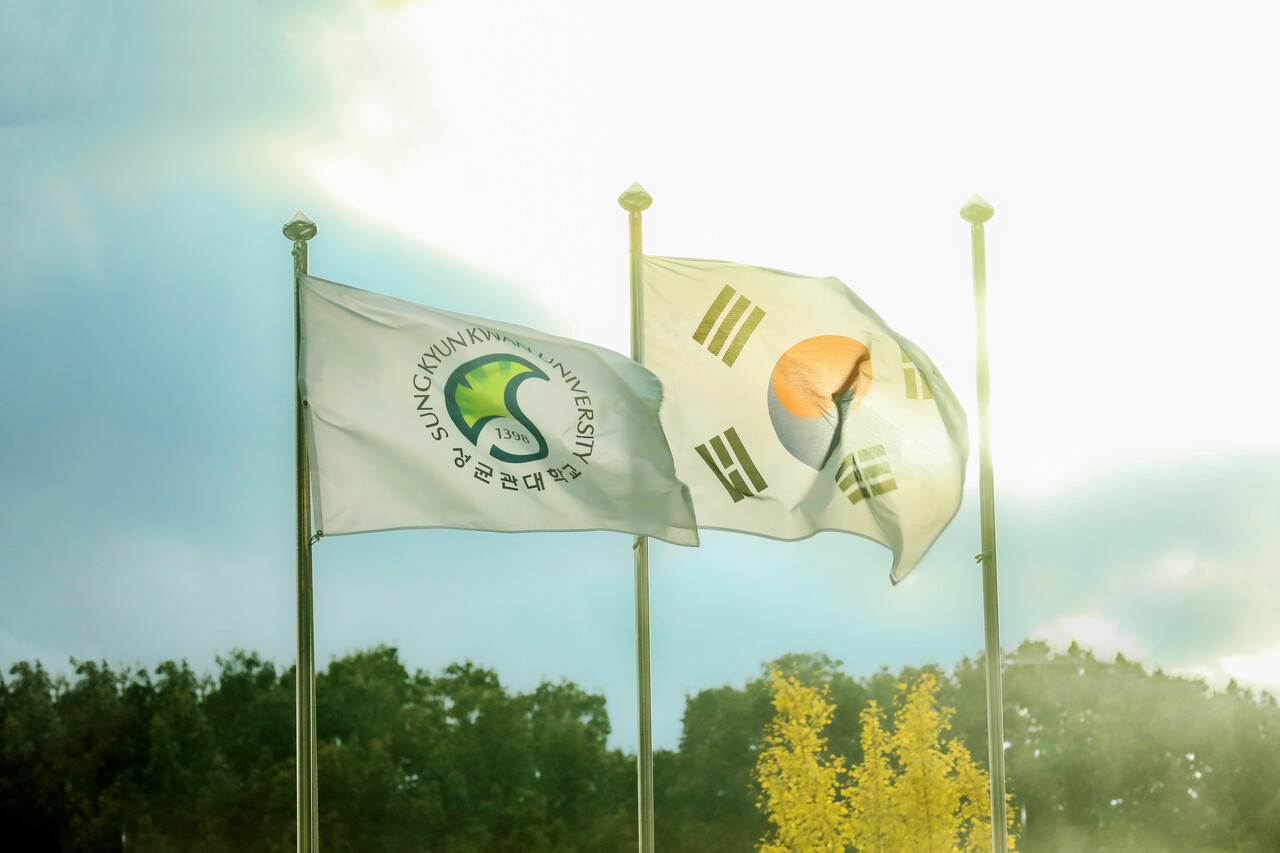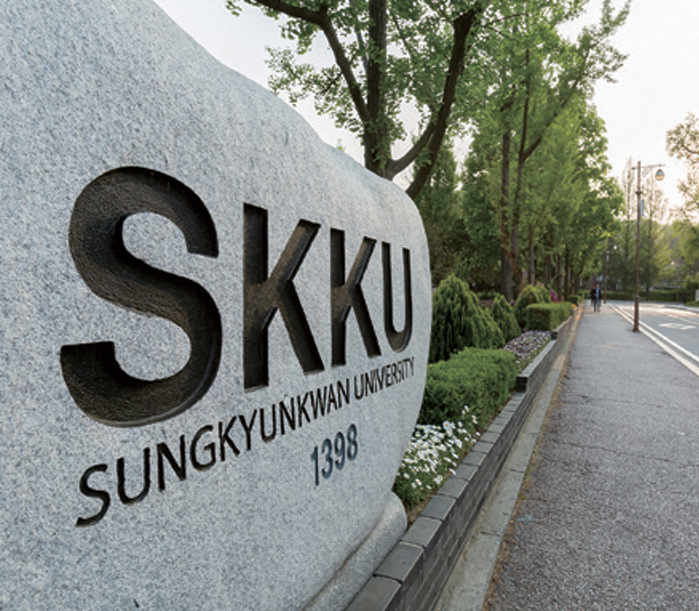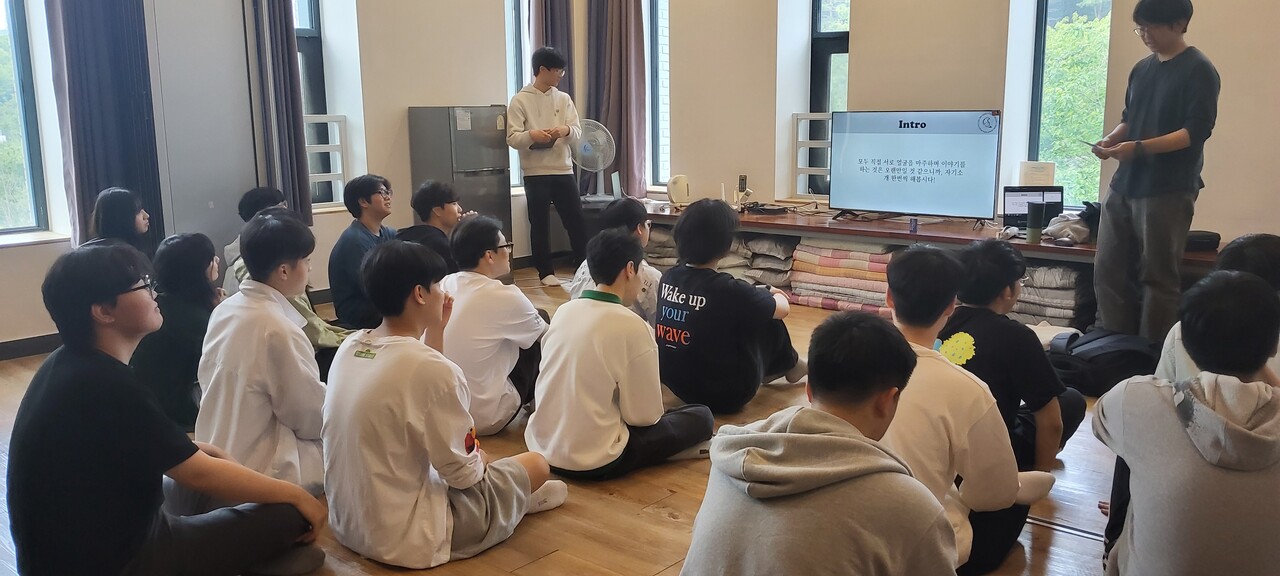
Sungkyunkwan University (SKKU)’s bold pursuit of becoming a global leading institution shows no sign of slowing down. Demonstrating its ambition to stay ahead of the trend, the university continues to introduce new departments. Rather than adapting to a future created by others, SKKU is determined to shape its own. The Sungkyun Times (SKT) takes a closer look at the university’s recently launched and forthcoming programs.
A Campus Filled with Innovation

In the 2026 Times Higher Education (THE) World University Rankings, SKKU ranked fourth overall among Korean universities. This achievement reflects the university’s continuous growth, driven by excellence in education and a strong commitment to cultivating future leaders. Building on this momentum, SKKU is introducing new academic programs to further strengthen its global competitiveness and respond to evolving educational and societal needs. This year, Exploratory Studies and the Department of Quantum Information Engineering were launched on campus. Exploratory Studies was established under the Ministry of Education’s policy to expand students’ academic choices and provide greater freedom in exploring different majors. The Department of Quantum Information Engineering was introduced to meet the growing demand for experts in quantum computing and emerging technologies. Next year, SKKU will open the Department of Battery Science and Engineering and the Department of Biopharmaceutical Regulatory Science. The Department of Battery Science and Engineering is an employment-linked program jointly developed with Samsung SDI, a leading manufacturer of batteries and electronic materials, offering graduates a direct career pathway into the company. Meanwhile, the Department of Biopharmaceutical Regulatory Science was founded to address Korea’s shortage of experts in biopharmaceuticals and regulatory science — key fields for accelerating product commercialization. Taken together, these programs are expected to infuse the campus with innovation and forward-thinking spirit. With the belief that today’s questions can safeguard tomorrow’s landscape and that today’s research can guide humanity’s future, SKKU continues to take confident steps toward progress.
SKKU Today
-Exploratory Studies

Students admitted to Exploratory Studies are empowered to design their own academic paths and plan for the future according to their interests and aptitudes. Unlike the undeclared major system, Exploratory Studies imposes no quota restrictions on individual departments, allowing students to select their desired majors without grade based limitations. Upon entering their second or third year, students enjoy broad flexibility in choosing their majors. They can freely enter any of nearly 40 majors, with only a few exceptions, depending on their preferences and completion of prerequisite courses. In an interview with the SKT, Ahn Jun-young, Manager of the University College Administration Office, stated, “The three core pillars of Exploratory Studies are self-directed learning, interdisciplinarity, and community orientation. In line with these values, students are encouraged to pursue a bold and active exploration to identify the department that best fits them and to envision their future selves.” Additionally, Jang Seung-gyun (Freshman, Exploratory Studies) told the SKT, “One of the greatest advantages is the freedom to explore various fields without the pressure of grades during the first year.” For areas of improvement, he noted that there were limited opportunities for direct interaction among students within Exploratory Studies and expressed hope that the University College would organize more group activities. Freedom brings responsibility, yet through that freedom, students in Exploratory Studies can shape their futures by choosing a department that truly inspires them.
-Department of Quantum Information Engineering

The Department of Quantum Information Engineering offers a curriculum aligned with the rapidly growing quantum industry and equips students with practical problem-solving skills. Integrating mathematics, electronics, physics, and computer science, the program prepares students for roles across quantum hardware and software, semiconductors, and high-performance computing. Students gain early access to advanced technologies and are encouraged to grow into future leaders in quantum innovation. Jung Hui-on (Freshman, Department of Quantum Information Engineering) shared his experience in an interview with the SKT, “The most memorable class so far has been Introduction to Quantum Engineering. It was fascinating to study various phenomena in quantum mechanics that I had only seen on YouTube before, and I was especially impressed by the professor’s fast-paced lectures, as the class managed to finish an entire textbook in just two months.” When asked about potential improvements, he responded, “I tried to start a study group, but without a departmental student council, it was not possible. Establishing one would greatly benefit the department.” It is only natural for newly established departments to have shortcomings; their task is to improve with each passing year.
An SKKU for Tomorrow
-Department of Battery Science and Engineering

The significance of the battery industry, which powers today’s leading-edge technologies, is growing more than ever. The Department of Battery Science and Engineering stands as Korea’s only undergraduate program dedicated to the comprehensive study of battery principles and applications. The department offers full scholarships to first-year and second-year students, while third-year and fourth-year students become eligible to receive full tuition support upon passing Samsung SDI’s recruitment process. The curriculum is designed to cultivate versatile experts in battery technology through five key categories: fundamental sciences, battery components, advanced battery processes, battery research practice, and industrial field training. In the early years, the program focuses on fundamental sciences and the basic principles of battery systems. In later years, it expands into advanced process strategies and hands-on training that bridges theoretical knowledge with practical experience. In an interview with the SKT, Kim Byung-hoon, a Professor of the Department of Battery Science and Engineering at SKKU, explained, “Battery engineering is an interdisciplinary field that integrates diverse areas of science and engineering, requiring individuals capable of applying knowledge across disciplines. At the same time, it is a highly flexible domain where existing expertise can be broadly utilized.” Regarding expectations for next year’s incoming class, the professor hopes to meet students with strong curiosity and a passion for learning who will build upon their undergraduate training to become competitive battery experts. Looking ahead, students in this major will be able to build their own careers by leveraging their strengths within the extensive framework of battery science and pursue opportunities on a greater stage.
-Department of Biopharmaceutical Regulatory Science

The biopharmaceutical industry is currently undergoing rapid transformation, fueled by its convergence with cutting-edge technologies. In this environment, technological innovation must be matched by regulatory expertise to ensure the safe and effective application of new advancements. The Department of Biopharmaceutical Regulatory Science aims to foster interdisciplinary experts who are proficient in both the technical and regulatory dimensions of the field. By training students to apply regulatory science from the earliest stages of drug development, the program ensures that pharmaceutical technology and regulatory requirements are evaluated together, which accelerates the formulation of more precise commercialization strategies. In an interview with the SKT, Yook Sim-myung, a Professor of the School of Pharmacy at SKKU, explained, “Through collaborations with leading companies and hospitals, and through training with advanced facilities using techniques like flow cytometry, multiphoton microscopy, and cryo-electron microscopy, students can acquire both scientific and practical skills needed to thrive in the global biopharmaceutical field.” She further shared her expectations for next year’s freshmen, saying, “We expect our students to cultivate both academic excellence and collaborative spirit, so that they can become well-rounded professionals who contribute not only to Korea’s pharmaceutical and biotechnological industries but also to the global advancement of innovative medicines.” Graduates of this newly established department are poised to become highly competent experts ready to make their mark on the biopharmaceutical sector worldwide.
Education is often described as a hundred-year plan, underscoring the need for vision that looks a century ahead. In Korea — a nation with limited natural resources — human talent remains its greatest asset, and the professionals nurtured by universities play a pivotal role in shaping the country’s future. It is hoped that these newly established programs built through SKKU’s foresight and dedication do not fade prematurely but endure, ultimately becoming cornerstones of the university’s next century of innovation.
